Engineering Pro Guides is your guide to passing the Mechanical & Electrical PE and FE Exams
Engineering Pro Guides provides mechanical and electrical PE and FE exam technical study guides, practice exams and much more. Contact Justin for more information.
Email: contact@engproguides.com
EXAM TOOLS
Free Mechanical & Electrical PE Exam Study Tips
General Tips (Good stuff is at the bottom)
Most important step in an engineer's career
The professional engineering license is one of the most important steps in an engineers career. It allows the individual to legally practice engineering in their state. This credential can also help the engineer to obtain higher compensation and provide the first step in developing a credible reputation.
Must meet requirements to become licensed.
But in order to obtain this license, the engineer must first meet the qualifications as required by the state of wanted licensed, including working a minimum amount of years under a registered professional engineer. These engineers must serve as references on the application. The state licensing board for the exact amount of years and references required should be contacted. The engineer must also have passed the Fundamentals of Engineering exam. Finally, the engineer must pass the Professional Engineering or PE Exam in his or her discipline.
- Obtain certification as an Engineer in Training (EIT)
- Meet minimum work experience [2 to 4 years depending on teh state]
- Register for exam with NCEES at https://www.ncees.org/
- Complete State application
- Last step, PASS P.E. EXAM
Exams offered in April and October
NCEES Exam Schedule
8 Hour Exam, Morning and Afternoon Sessions
The exam consists of two 4-hour sessions, a morning and an afternoon session. Each morning and afternoon session is dependent on your focus area. Engineering Pro Guides provides guides for the following areas, (1) HVAC & Refrigeration, (2) Thermal and Fluids (3) Machine Design & Materials and (4) Power. NCEES indicates what will be on each exam as shown on the following PDFs.
NCEES HVAC and Refrigeration Exam TopicsNCEES Thermal and Fluids Exam Topics
NCEES Mechanical Systems and Materials Exam Topics
NCEES Electrical Power Exam Topics
Free Engineering Pro Guides Material
The following material is provided free of charge by Engineering Pro Guides. First, I have indicated what references you need for each exam. A good portion (30%) of the exam can be solved by just knowing your references. Second, I share surveys of past test takers. These surveys talk about the passing score, recommended references, number of hours studied, easy vs. hard topics and recommended study material. Third, cheat sheets are provided for your use in word and pdf format. These cheat sheets give you all the necessary unit conversions and equations necessary to pass the PE exam. I have given you the word format so you can customize the cheat sheets to suit your needs. Lastly, I have shared some of the key concepts and skills under each NCEES topic and subtopic to give you an idea of what to study. Again if you want all the key concepts and skills then you will have to purchase the technical study guides, reference exam and full exam. There are four criteria that you should know to determine what will be on the PE exam. These four criteria are covered in the technical study guides.
Free Engineering Pro Guides HVAC & Refrigeration PE Exam Links
1. Recommended HVAC References2. HVAC Surveys
3. HVAC Cheat Sheets and Unit Conversions
4. Sample HVAC Key Concepts and Skills
Free Engineering Pro Guides Thermal & Fluids PE Exam Links
1. Recommended Thermal References2. Thermal Surveys
3. Thermal Cheat Sheets and Unit Conversions
4. Sample Thermal Key Concepts and Skills
Free Engineering Pro Guides Machine Design & Materials PE Exam Links
1. Recommended MDM References2. MDM Surveys
3. MDM Cheat Sheets and Unit Conversions
4. Sample MDM Key Concepts and Skills
Free Engineering Pro Guides Electrical Power PE Exam Links
1. Recommended Power References2. Power Surveys
3. Power Cheat Sheets and Unit Conversions
4. Sample Power Key Concepts and Skills